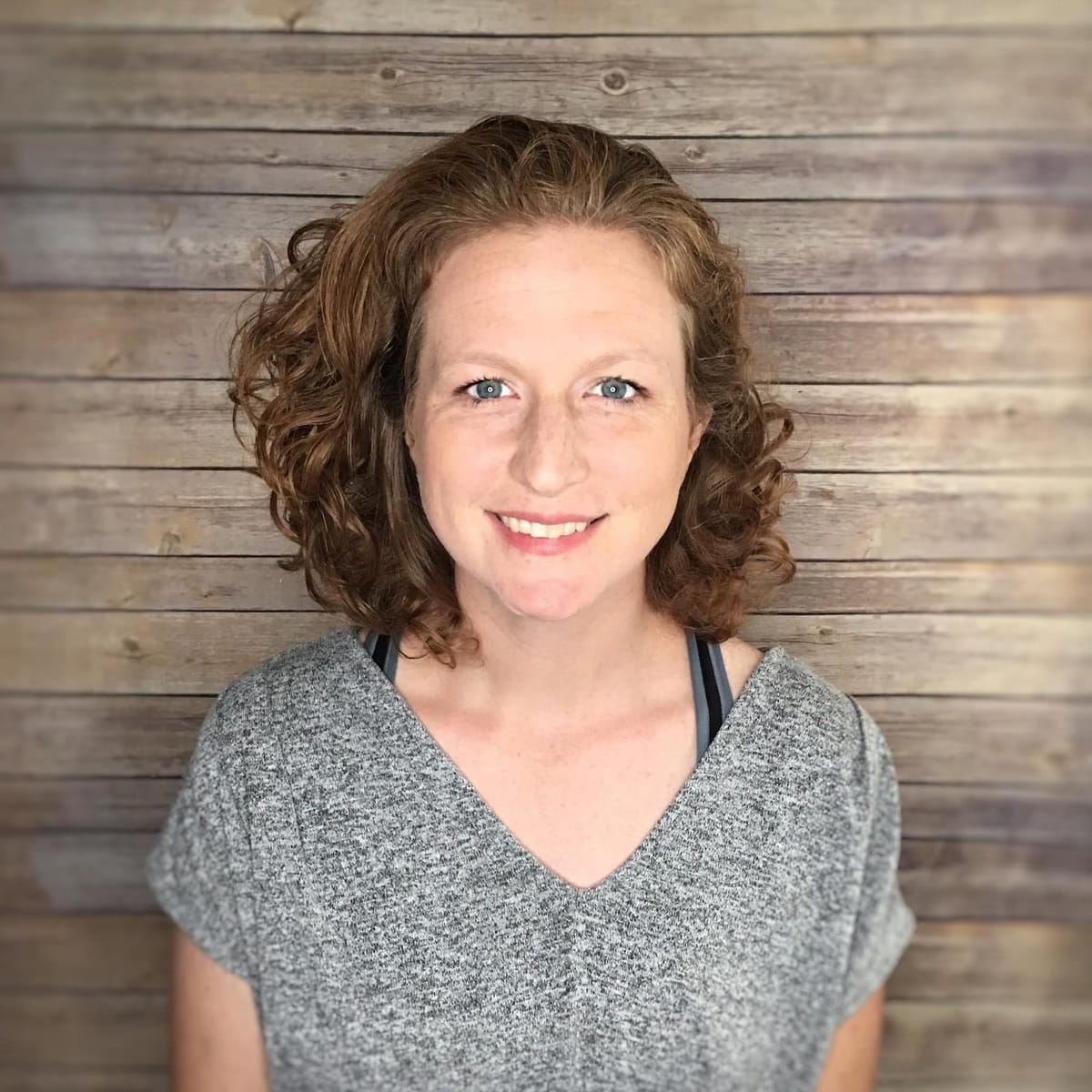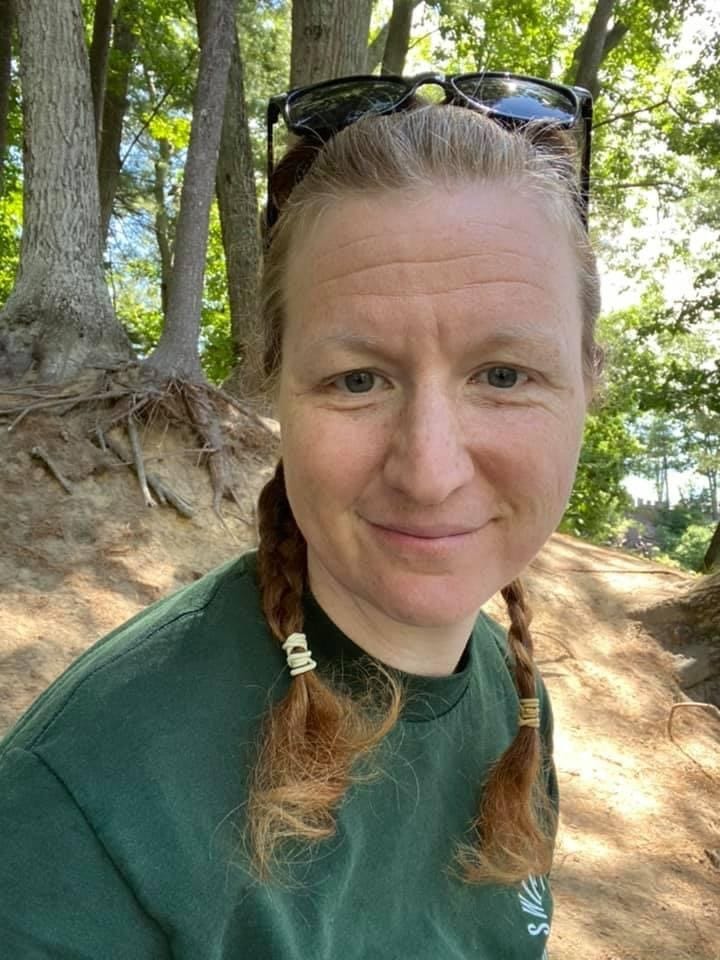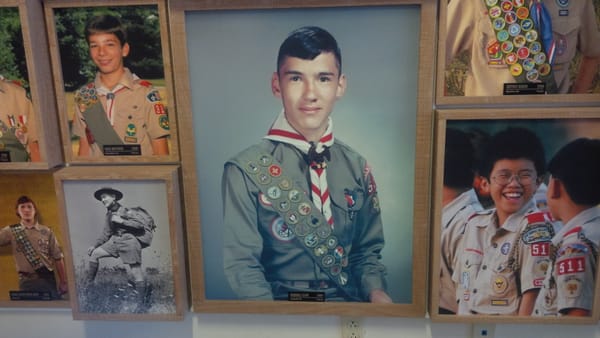How Alison Batey started the growing Facebook group for LGBTQ+ Scouts and Allies
“By giving us a place to share our triumphs and our fears, we’ve also empowered people to be more willing to try and more willing to take this on for themselves,” says Batey.

When Alison Batey approached her boss in early 2020 about her professional goals, his attention was, understandably, focused elsewhere. It was a month into the pandemic, and Batey’s BSA council was attempting to pivot their entire program to online spaces. In other words: They were busy.
But Batey gave her pitch anyway. She wanted to create three volunteer resource groups: One for women, one for scouters with special needs, and one for the LGBTQ+ community. A year earlier, Batey helped run an Introduction to Outdoor Leadership Skills course specifically taught by and for women, and wanted to build on that success.
Batey’s boss gave her the green light and, it being the pandemic, she created the groups on Facebook. The Women in Scouting group grew to about 200 members; the Special Needs group reached about 100. But the LGBTQ+ Scouts group followed a much different trajectory.
She started by posting the group in some of the larger Scouting communities on Facebook, like Family Scouting and Boy Scout Volunteers.
“The first time I did it, I was really surprised … by how much response, both positive and negative, it received,” Batey said. She quickly learned to reach out to the groups’ admins and turn off comments ahead of time. “Every time, it would get very aggressive and abrasive,” Batey said.
But the marketing worked. Within a month, Batey’s LGBTQ+ Scouts and Allies group had 500 members. Many of them, however, were interested in complaining about how tough the BSA program used to be for queer scouters. While Batey understood that frustration, she also wanted to focus on the future, so she started pre-screening posts and blocking anything that was too negative. “That was hard,” Batey said.
A year and a half later, the group has outgrown that initial phase, Batey said. It now has close to 1,400 members, many of whom are actively supporting each other on a daily basis. “What we do best, really, is give support to the leader with the one-off question,” Batey said.
Recent questions range from how to support a scout who comes out as trans, or how to ask for pronouns, or how to create a more welcoming environment on the unit level. It’s not uncommon for these questions to receive 50 or more comments in response.
Batey believes it’s giving local scout leaders the confidence to do more for LGBTQ+ inclusion in their units. “By giving us a place to share our triumphs and our fears, we’ve also empowered people to be more willing to try and more willing to take this on for themselves,” she said.
Batey and her admin team — Alex Mastromarchi, Zack Shepherd and Kirsten Kramer — would like to do more with the Facebook group, but attempts at more programming haven’t always panned out. A virtual teen night that the group recently hosted only drew one youth attendee. So for now, Batey plans to double down on what the group does best: “I do really do think our power is answering questions and just being there.”

Batey, who identifies as bisexual, did not grow up a Scouting family. She joined Girl Scouts out of a desire to do something adventurous.
“My parents thought I was insane,” she said. “They weren’t outdoorsy people at all.”
Nonetheless, Batey stayed with the Girl Scout program through her junior year of high school, earning her silver award — the equivalent of life scout in Scouts BSA. She eventually went on to earn a masters degree in special education, and started working at a school for students with learning differences.
Each year, the school would take the students on some type of adventure trip. One year might be whitewater rafting, another primitive camping. “That re-energized my outdoor skills,” Batey said. In the fall of 2017, the annual trip took her to New England Base Camp, an “outdoor adventure park” just south of Boston that’s run by the Spirit of Adventure Council.
The kids were doing the high ropes course, and Batey, knowing how to belay from her scouting days, was asked to jump in and teach the students how to do it, too. Twenty minutes later, the camp’s program director Darrin Johnson asked Batey if she wanted a summer job.
Batey wasn’t sure at first. She had a 7-year-old at home, but Johnson said she could bring him and live in a house on the property. And what about Batey’s chickens? Johnson said she could bring those, too.
“It didn’t seem like there was a way to get them to say no,” Batey said. So she said yes to running the day camp program that summer. About a year later, Batey became a full-time employee, which is how she ended up asking her boss about volunteer resource groups at the beginning of the pandemic.
Batey is now also on the team for VIEW, the national resource group for LGBTQ+ Scouting employees. And she’s working to develop a national toolkit for units to support LGBTQ+ youth, which could be rolled out as early as November.
“This group that I started as part of my professional goals has really opened a lot of doors for me, that are not intentional,” Batey said. Her involvement was accelerated by the departure of Cheryl Katon, who was Batey’s scout executive and the first openly trans person to serve in such a role. Batey would often ask Katon for help, but now Batey has become a “go-to” herself in Scouting circles.
Ultimately, Batey’s efforts — the Facebook group, the national toolkit, the employee resource group — are filling gaps in a program that otherwise has done little to support its LGBTQ+ members since admitting them six years ago.
"I love our group, and I would love for it to continue and to be a resource, but I do wish that that existed in a more direct way from national,” she said.


